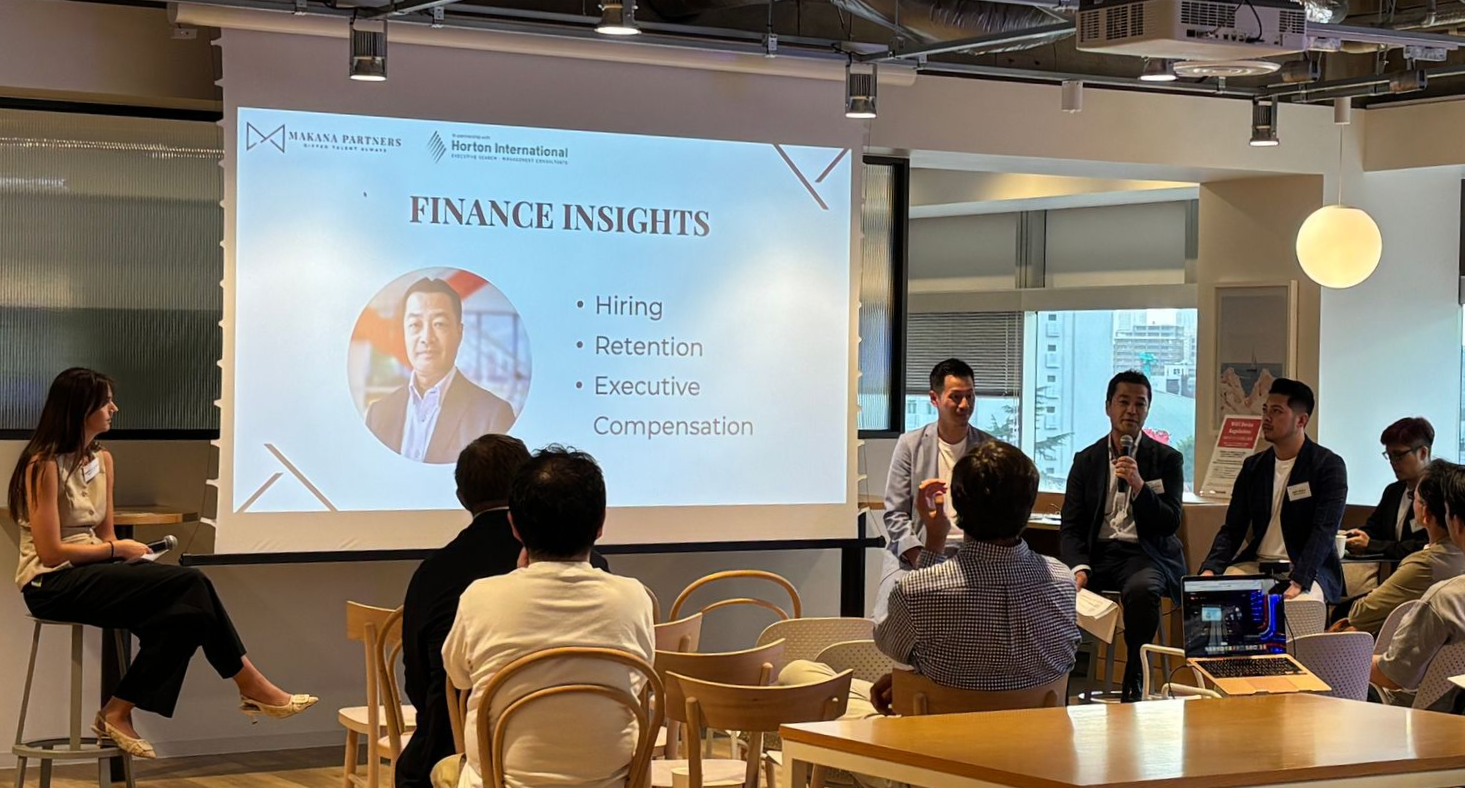Intern Spotlight: Reflecting on Freya Cullen’s Journey at Makana Partners
When Freya Cullen joined Makana Partners for her internship, she brought curiosity, strong analytical skills, and a real enthusiasm for learning. With experience from Deloitte, St James’s Place, and GAIN UK, Freya was eager to explore how executive search connects people, data, and strategy.
During her time with us, Freya supported research, marketing, and candidate sourcing projects, quickly adapting to new tools and even exploring how AI can make recruitment more efficient. Her focus, creativity, and professionalism stood out as she took on each challenge with confidence.
In this spotlight, Freya shares what surprised her most about the executive search industry, what she learned about teamwork and time management, and how this internship has shaped her future as an Economics student at the University of Surrey.
1) What is one thing you learned about the executive search industry during your internship that surprised you? How has it changed the way you view the work we do?
One thing I learned during my internship is that high-level roles for clients often come with many detailed and specific requirements. I was also surprised by the differences between the Japanese and UK markets, particularly how the recruitment processes and expectations vary across regions.
2) Can you describe a time when you helped with sourcing candidates? What strategies or tools did you find most effective, and why?
During my time supporting recruitment for senior-level roles across different sectors, including finance, I helped source and identify high-caliber candidates that met each client’s specific and complex requirements. To do this effectively, I utilized a refined Google search tool that allowed me to explore detailed professional profiles across the industry. This approach helped me pinpoint individuals with the right experience and background, ensuring a precise match for the client’s description and making the sourcing process both efficient and targeted.
3) How did managing and updating our content calendar help you understand the importance of marketing to our company?
Managing and updating the content calendar helped me see how strategic planning and organization directly impact marketing success. By reviewing upcoming posts and topics, I could identify content gaps and ensure our messaging stayed consistent and aligned with company goals. It also allowed me to schedule posts effectively, track the best times for engagement, and analyze performance data.
4) What did you enjoy most about creating or managing content for our social media or website? Can you give an example of a post or project you’re especially proud of?
What I enjoyed most about creating and managing content was exploring different AI tools to improve both content creation and scheduling. I found it rewarding to research new technologies, present my findings to Yan Sen and the team, and then apply those insights in our marketing strategy. This experience gave me creative freedom to manage my section, align our posts with the brand image, and experiment with different content ideas. I’m especially proud of how this process helped me analyze engagement data and develop new, more effective strategies for future campaigns.
An example of this was when I used a digital platform to create engaging videos showcasing our recent company event. From that content, I developed a structured marketing plan and strategy, which I later presented to the Horton International team.
5) You worked on a variety of tasks—such as sourcing, research, social media, and more. How did you stay organized and manage your time effectively? What was the most challenging part, and how did you handle it?
Managing multiple tasks during my internship required effective organization and time management. I broke down tasks into dedicated time blocks to stay motivated and focused, especially as new tasks emerged alongside ongoing responsibilities. I also used a spreadsheet to track deadlines and progress, which helped me stay on top of each task and manage timing effectively.
The most challenging part was balancing new assignments with existing ones, but by prioritizing and careful scheduling, I ensured nothing was overlooked and all deadlines were met.
6) How did working with consultants, mentors, and other team members help you grow professionally? Did they challenge any of your assumptions or teach you something unexpected?
Working with the consultants, mentors, and wider team helped me grow a lot professionally. Everyone was incredibly supportive and welcoming, which gave me the confidence to share my ideas freely, even as an intern. What surprised me most was how collaborative the environment was—when anyone, including me, needed help, the whole team stepped in to brainstorm and find solutions. I also learned from consultants across different industries about what each sector values and how to find the right client matches.
7) You supported research and reporting tasks during your internship. What did you learn about analyzing the market or preparing presentations for new tools?
During my internship, supporting research and reporting tasks taught me that there are many different options and strategies to save time effectively in our work, which I wasn’t aware of before. I also learned how these tools and approaches can improve the overall market by better matching clients with candidates and helping to develop the business further.
Presenting findings was particularly insightful because it allowed me to gather diverse opinions from the team on the tools we reviewed, which helped guide decisions on what to implement going forward.
8) If you could suggest one improvement to our processes—whether in sourcing, research, data management, or social media—what would it be and why?
From my experience handling content creation, I would suggest diversifying the types of posts to keep our audience engaged and involving consultants more actively in this area. Additionally, regularly analyzing our competitors’ content could provide valuable insights.
Before I left, we explored different AI tools not only for content but also for outreach and sourcing. I believe that expanding our use of varied platforms and technologies will help us grow professionally and optimize the team’s time, ultimately improving efficiency across sourcing, research, data management, and social media.
9) Looking back, which part of your internship helped you grow the most? What new skills or knowledge are you taking away from this experience?
Looking back, the part of my internship that helped me grow the most was learning how AI can support and enhance many aspects of business operations, from marketing to recruitment. Before the internship, I had little experience in these areas, but by managing social media platforms and conducting research, I developed valuable skills in both marketing and recruitment.
This experience gave me a well-rounded understanding of how technology and strategic planning combine to drive business growth and effectiveness.










